 Technology peripherals
Technology peripherals AI
AI Three Turing Award winners debated at the Heidelberg Forum whether deep learning can achieve human-level reasoning
Three Turing Award winners debated at the Heidelberg Forum whether deep learning can achieve human-level reasoning85-year-old Turing Award winner Raj Reddy participated in the recently held ninth Heidelberg Laureate Forum. He sighed sincerely: "I have been working in the field of artificial intelligence for nearly 60 years, but I never thought that this technology would be practical in my lifetime."

10 years ago, in 2012, deep learning made a breakthrough. At that time, an innovative algorithm for image classification based on multi-layer neural networks suddenly proved to be much better than all previous algorithms. This breakthrough enables the application of deep learning in areas such as speech and image recognition, automatic translation and transcription, and robotics.
As deep learning is embedded into more and more daily applications, more and more examples of possible errors have surfaced: artificial intelligence systems will discriminate and formulate stereotypes Impressions, making elusive decisions, and requiring large amounts of data and sometimes large amounts of energy.
In this context, the 9th Heidelberg Laureates Forum organized a seminar on the application and impact of deep learning for about 200 young researchers from more than 50 countries. group discussion. Discussions included Turing Award winners Yoshua Bengio, Yann LeCun, and Raj Reddy, 2011 ACM Computing Award winner Sanjeev Arora, and researchers Shannon Vallor, Been Kim, Dina Machuve, and Shakir Mohamed.
Meta chief AI scientist Yann LeCun was the most optimistic of the panelists: “There are a lot of people claiming that deep learning can’t do this or that, and most of those claims have been resolved after several years of work. Proved wrong. Over the past five years, deep learning has been able to do things that none of us could have imagined, and progress is accelerating."
LeCun For example, Meta The company's Facebook now automatically detects 96% of hate speech, up from 40% about four years ago. He attributes this improvement to deep learning. "We are bombarded with tons of information every day, and it's only getting worse. We're going to need more automated systems that allow us to sift through this information."
Shannon Vallor, a professor at the University of Edinburgh in the UK, objects to LeCun's view that technology is just moving forward, it seems to have a will of its own, and society just needs to adapt. “That’s exactly why we get into some of the problems we have. Technology can take many forked paths, and people decide which fork is best. Deep learning systems are built and built by humans based on their own values, incentives, and power structures. deployments are outright artifacts, and therefore we are fully responsible for them."
One of the criticisms of deep learning is that while it is good at pattern recognition, it is not currently suitable for Logical reasoning, while old-fashioned symbolic AI is suitable. However, both Bengio and LeCun see no reason why deep learning systems can’t be used to reason. As Bengio observed, "Humans also use some kind of neural network in their brains, and I believe there are ways to achieve human-like reasoning through deep learning architectures."
However, Bengio added that he doesn't think simply scaling up today's neural networks will be enough. "I believe we can draw more inspiration from biology and human intelligence to bridge the current gap between artificial intelligence and human intelligence."
Theoretical Computer at Princeton University Scientist Sanjeev Arora added that it's not just deep learning that can't reason, but we can't reason with deep neural networks either. Arora said: "We need to understand more about what is going on inside the black box of deep learning systems, and that is what I am trying to do."
Raj Reddy is so far The longest-standing group member in the artificial intelligence community, he has been involved in the doctoral research of artificial intelligence pioneer John McCarthy since the 1960s. Reddy sees the glass as half full, not half empty. "An important application of deep learning is to help people at the bottom of the social pyramid. About 2 billion people in the world cannot read or write. Various language technologies are now good enough to use, such as speech recognition and translation. I work in this field For nearly 60 years, I never expected that this technology would be practical in my lifetime. In ten years, even illiterate people will be able to read any book, watch any movie, and have a conversation with anyone, anywhere in the world, in their native language.”
However, handling smaller niche languages remains an unsolved problem for deep learning techniques because far less data is available. In Africa alone, there are 2,000 languages spoken but no AI technology is available, says data science consultant Dina Machuve. It’s important to go into a community and see what works for that community, so when looking for deep learning applications for Africa, Machuve focused on image applications – “We have developed early detection of poultry diseases and crop diseases based on image recognition. Detection systems."
Unfortunately, in many ways, Africa remains the "missing continent" in deep learning research and deployment, adds Shakir Mohamed, a researcher at DeepMind. “We counted how many papers from Africans were submitted at NeurIPS, a well-known neural information processing conference, between 2006 and 2016, and the answer was: 0. The same is true for Latin America, maybe 1. I hope you all People, wherever you are, can take seriously the question of representation, who is doing the work, where it is being done, and how you share your experiences with others.”
Been Kim, a research scientist at Google Brain, said she hopes people realize that deep learning is not a magic tool that can solve all social problems. In fact, she observed, "There may be non-AI solutions that are better suited to your problem than machine learning. You have to stop and question: Is this the right tool?"
When asked what the general public should know about artificial intelligence and its prospects, Mohamed said: "The future has not been decided yet. We can still create and shape the future, and that is what we should always remember."
The above is the detailed content of Three Turing Award winners debated at the Heidelberg Forum whether deep learning can achieve human-level reasoning. For more information, please follow other related articles on the PHP Chinese website!
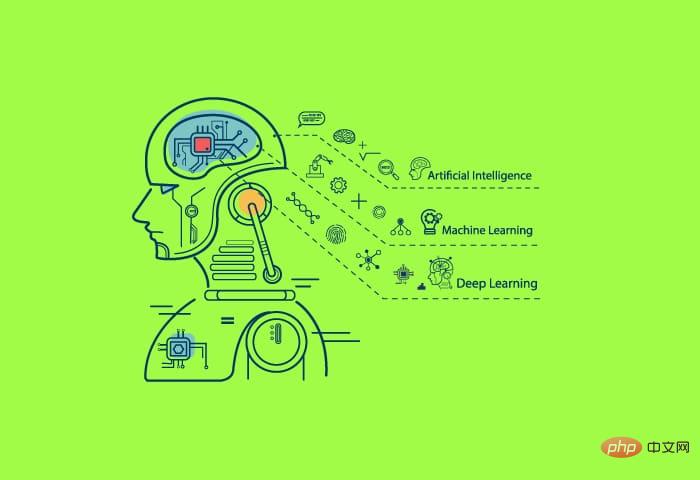 人工智能(AI)、机器学习(ML)和深度学习(DL):有什么区别?Apr 12, 2023 pm 01:25 PM
人工智能(AI)、机器学习(ML)和深度学习(DL):有什么区别?Apr 12, 2023 pm 01:25 PM人工智能Artificial Intelligence(AI)、机器学习Machine Learning(ML)和深度学习Deep Learning(DL)通常可以互换使用。但是,它们并不完全相同。人工智能是最广泛的概念,它赋予机器模仿人类行为的能力。机器学习是将人工智能应用到系统或机器中,帮助其自我学习和不断改进。最后,深度学习使用复杂的算法和深度神经网络来重复训练特定的模型或模式。让我们看看每个术语的演变和历程,以更好地理解人工智能、机器学习和深度学习实际指的是什么。人工智能自过去 70 多
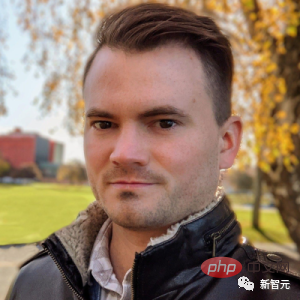 深度学习GPU选购指南:哪款显卡配得上我的炼丹炉?Apr 12, 2023 pm 04:31 PM
深度学习GPU选购指南:哪款显卡配得上我的炼丹炉?Apr 12, 2023 pm 04:31 PM众所周知,在处理深度学习和神经网络任务时,最好使用GPU而不是CPU来处理,因为在神经网络方面,即使是一个比较低端的GPU,性能也会胜过CPU。深度学习是一个对计算有着大量需求的领域,从一定程度上来说,GPU的选择将从根本上决定深度学习的体验。但问题来了,如何选购合适的GPU也是件头疼烧脑的事。怎么避免踩雷,如何做出性价比高的选择?曾经拿到过斯坦福、UCL、CMU、NYU、UW 博士 offer、目前在华盛顿大学读博的知名评测博主Tim Dettmers就针对深度学习领域需要怎样的GPU,结合自
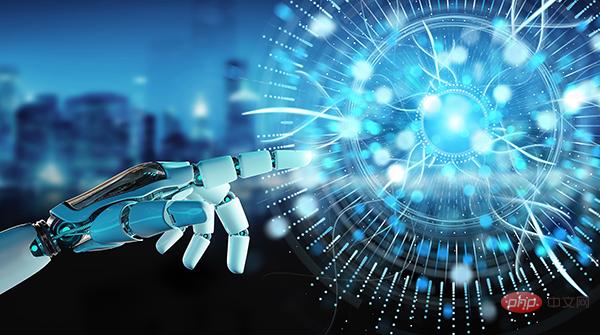 字节跳动模型大规模部署实战Apr 12, 2023 pm 08:31 PM
字节跳动模型大规模部署实战Apr 12, 2023 pm 08:31 PM一. 背景介绍在字节跳动,基于深度学习的应用遍地开花,工程师关注模型效果的同时也需要关注线上服务一致性和性能,早期这通常需要算法专家和工程专家分工合作并紧密配合来完成,这种模式存在比较高的 diff 排查验证等成本。随着 PyTorch/TensorFlow 框架的流行,深度学习模型训练和在线推理完成了统一,开发者仅需要关注具体算法逻辑,调用框架的 Python API 完成训练验证过程即可,之后模型可以很方便的序列化导出,并由统一的高性能 C++ 引擎完成推理工作。提升了开发者训练到部署的体验
 基于深度学习的Deepfake检测综述Apr 12, 2023 pm 06:04 PM
基于深度学习的Deepfake检测综述Apr 12, 2023 pm 06:04 PM深度学习 (DL) 已成为计算机科学中最具影响力的领域之一,直接影响着当今人类生活和社会。与历史上所有其他技术创新一样,深度学习也被用于一些违法的行为。Deepfakes 就是这样一种深度学习应用,在过去的几年里已经进行了数百项研究,发明和优化各种使用 AI 的 Deepfake 检测,本文主要就是讨论如何对 Deepfake 进行检测。为了应对Deepfake,已经开发出了深度学习方法以及机器学习(非深度学习)方法来检测 。深度学习模型需要考虑大量参数,因此需要大量数据来训练此类模型。这正是
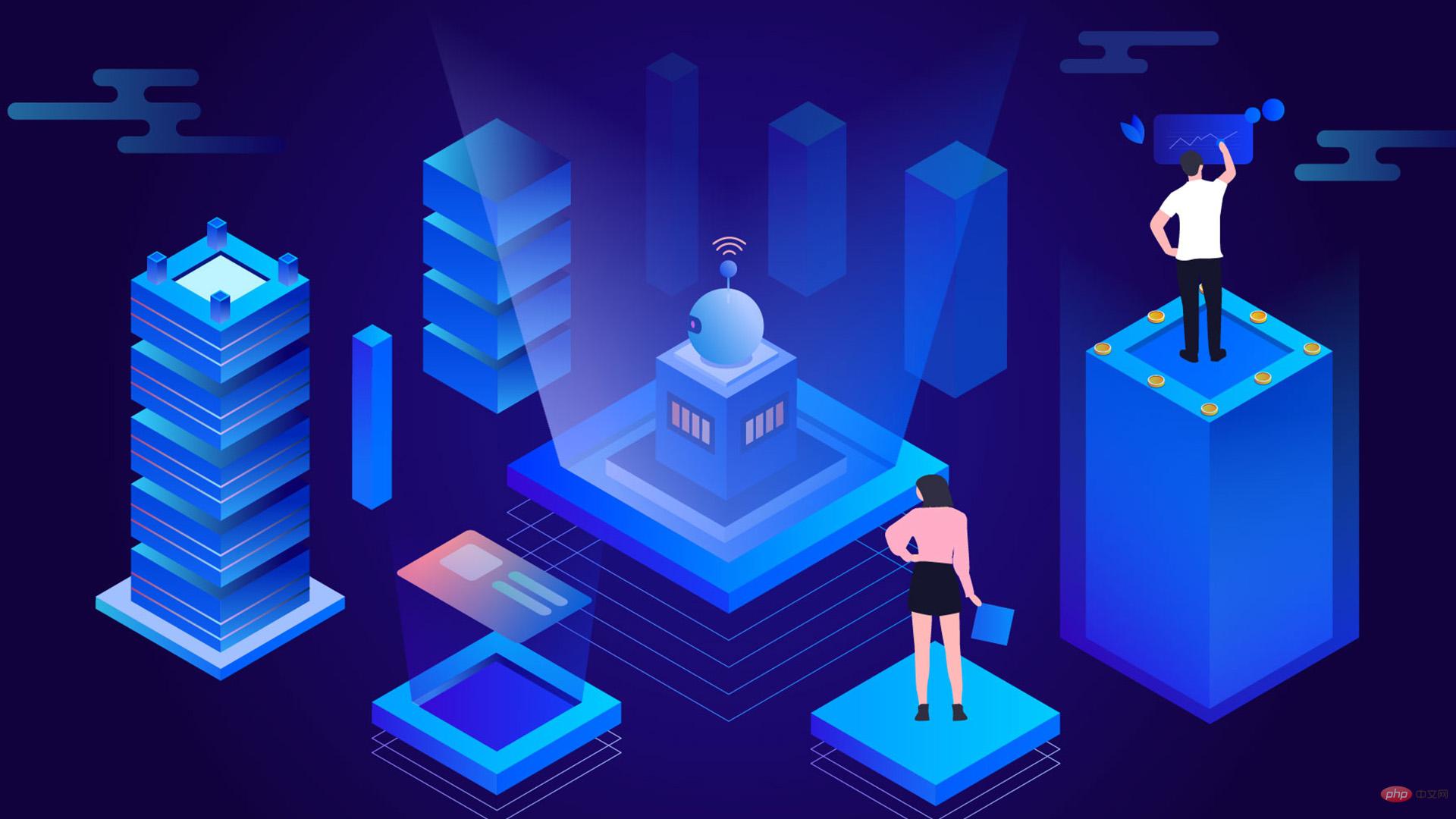 聊聊实时通信中的AI降噪技术Apr 12, 2023 pm 01:07 PM
聊聊实时通信中的AI降噪技术Apr 12, 2023 pm 01:07 PMPart 01 概述 在实时音视频通信场景,麦克风采集用户语音的同时会采集大量环境噪声,传统降噪算法仅对平稳噪声(如电扇风声、白噪声、电路底噪等)有一定效果,对非平稳的瞬态噪声(如餐厅嘈杂噪声、地铁环境噪声、家庭厨房噪声等)降噪效果较差,严重影响用户的通话体验。针对泛家庭、办公等复杂场景中的上百种非平稳噪声问题,融合通信系统部生态赋能团队自主研发基于GRU模型的AI音频降噪技术,并通过算法和工程优化,将降噪模型尺寸从2.4MB压缩至82KB,运行内存降低约65%;计算复杂度从约186Mflop
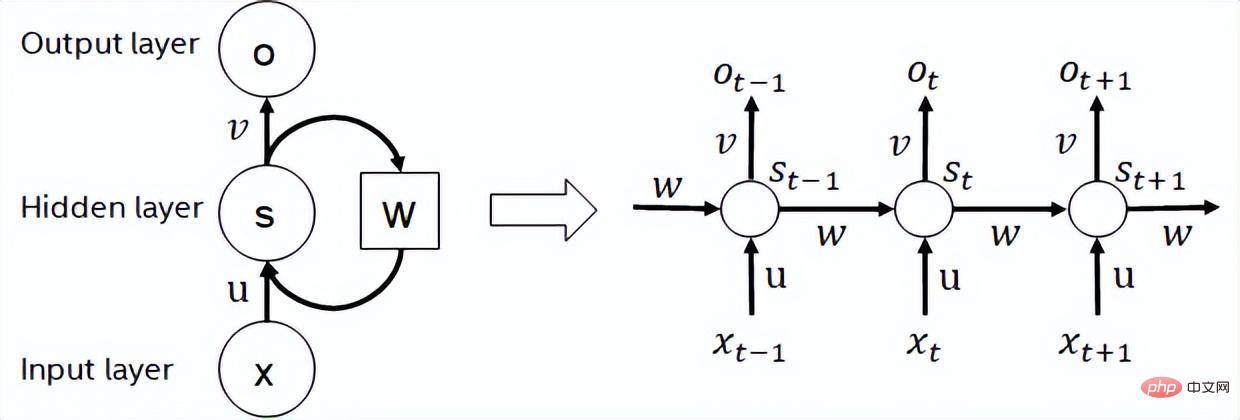 地址标准化服务AI深度学习模型推理优化实践Apr 11, 2023 pm 07:28 PM
地址标准化服务AI深度学习模型推理优化实践Apr 11, 2023 pm 07:28 PM导读深度学习已在面向自然语言处理等领域的实际业务场景中广泛落地,对它的推理性能优化成为了部署环节中重要的一环。推理性能的提升:一方面,可以充分发挥部署硬件的能力,降低用户响应时间,同时节省成本;另一方面,可以在保持响应时间不变的前提下,使用结构更为复杂的深度学习模型,进而提升业务精度指标。本文针对地址标准化服务中的深度学习模型开展了推理性能优化工作。通过高性能算子、量化、编译优化等优化手段,在精度指标不降低的前提下,AI模型的模型端到端推理速度最高可获得了4.11倍的提升。1. 模型推理性能优化
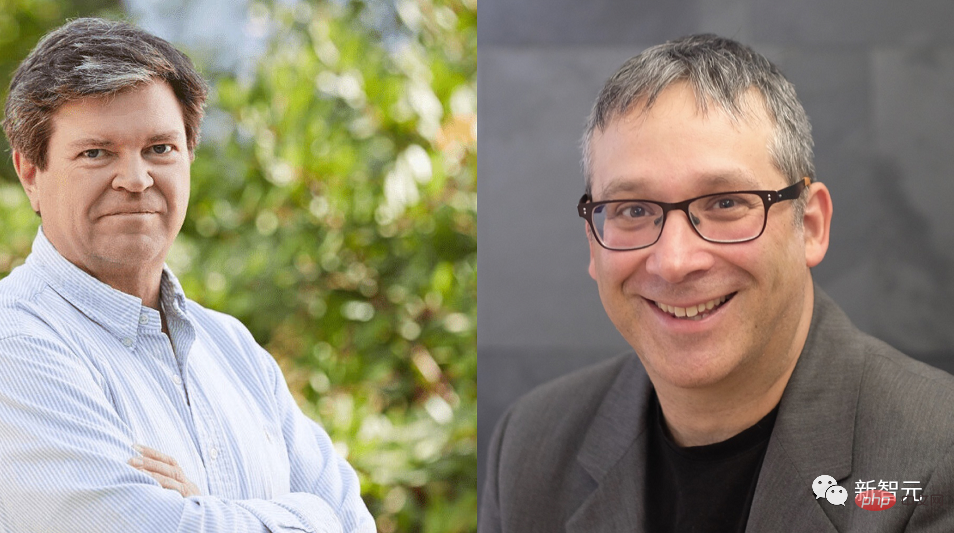 深度学习撞墙?LeCun与Marcus到底谁捅了马蜂窝Apr 09, 2023 am 09:41 AM
深度学习撞墙?LeCun与Marcus到底谁捅了马蜂窝Apr 09, 2023 am 09:41 AM今天的主角,是一对AI界相爱相杀的老冤家:Yann LeCun和Gary Marcus在正式讲述这一次的「新仇」之前,我们先来回顾一下,两位大神的「旧恨」。LeCun与Marcus之争Facebook首席人工智能科学家和纽约大学教授,2018年图灵奖(Turing Award)得主杨立昆(Yann LeCun)在NOEMA杂志发表文章,回应此前Gary Marcus对AI与深度学习的评论。此前,Marcus在杂志Nautilus中发文,称深度学习已经「无法前进」Marcus此人,属于是看热闹的不
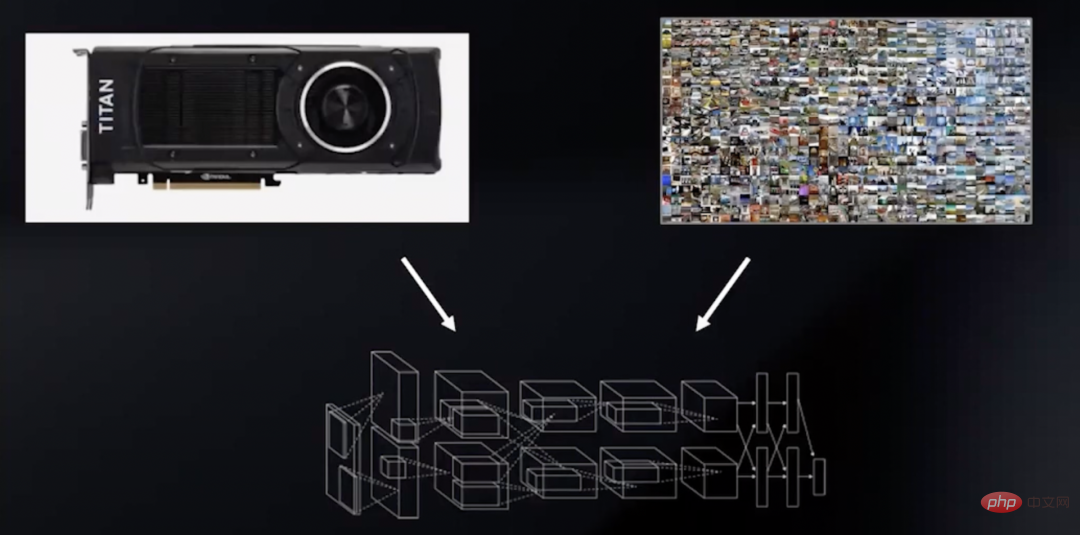 英伟达首席科学家:深度学习硬件的过去、现在和未来Apr 12, 2023 pm 03:07 PM
英伟达首席科学家:深度学习硬件的过去、现在和未来Apr 12, 2023 pm 03:07 PM过去十年是深度学习的“黄金十年”,它彻底改变了人类的工作和娱乐方式,并且广泛应用到医疗、教育、产品设计等各行各业,而这一切离不开计算硬件的进步,特别是GPU的革新。 深度学习技术的成功实现取决于三大要素:第一是算法。20世纪80年代甚至更早就提出了大多数深度学习算法如深度神经网络、卷积神经网络、反向传播算法和随机梯度下降等。 第二是数据集。训练神经网络的数据集必须足够大,才能使神经网络的性能优于其他技术。直至21世纪初,诸如Pascal和ImageNet等大数据集才得以现世。 第三是硬件。只有


Hot AI Tools

Undresser.AI Undress
AI-powered app for creating realistic nude photos

AI Clothes Remover
Online AI tool for removing clothes from photos.

Undress AI Tool
Undress images for free

Clothoff.io
AI clothes remover

AI Hentai Generator
Generate AI Hentai for free.

Hot Article

Hot Tools

SublimeText3 English version
Recommended: Win version, supports code prompts!

Safe Exam Browser
Safe Exam Browser is a secure browser environment for taking online exams securely. This software turns any computer into a secure workstation. It controls access to any utility and prevents students from using unauthorized resources.

Zend Studio 13.0.1
Powerful PHP integrated development environment

DVWA
Damn Vulnerable Web App (DVWA) is a PHP/MySQL web application that is very vulnerable. Its main goals are to be an aid for security professionals to test their skills and tools in a legal environment, to help web developers better understand the process of securing web applications, and to help teachers/students teach/learn in a classroom environment Web application security. The goal of DVWA is to practice some of the most common web vulnerabilities through a simple and straightforward interface, with varying degrees of difficulty. Please note that this software

mPDF
mPDF is a PHP library that can generate PDF files from UTF-8 encoded HTML. The original author, Ian Back, wrote mPDF to output PDF files "on the fly" from his website and handle different languages. It is slower than original scripts like HTML2FPDF and produces larger files when using Unicode fonts, but supports CSS styles etc. and has a lot of enhancements. Supports almost all languages, including RTL (Arabic and Hebrew) and CJK (Chinese, Japanese and Korean). Supports nested block-level elements (such as P, DIV),





